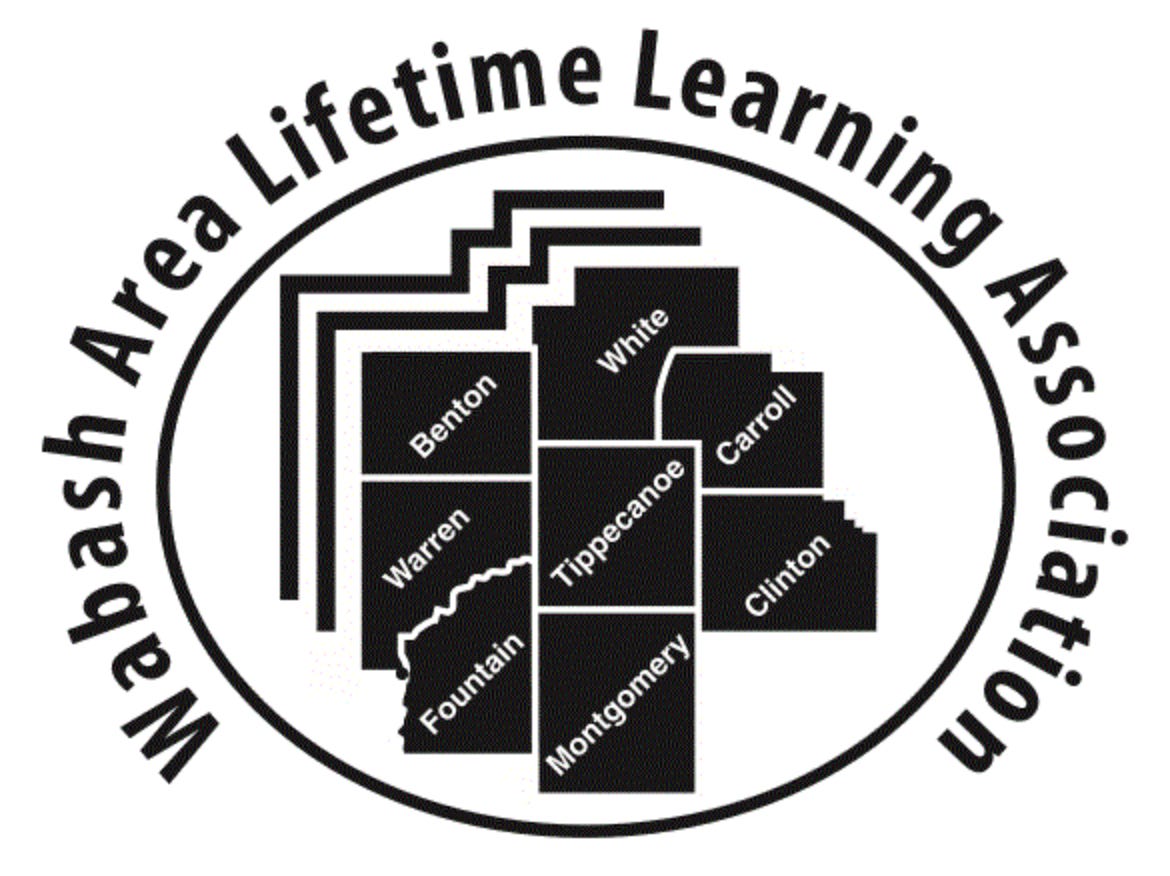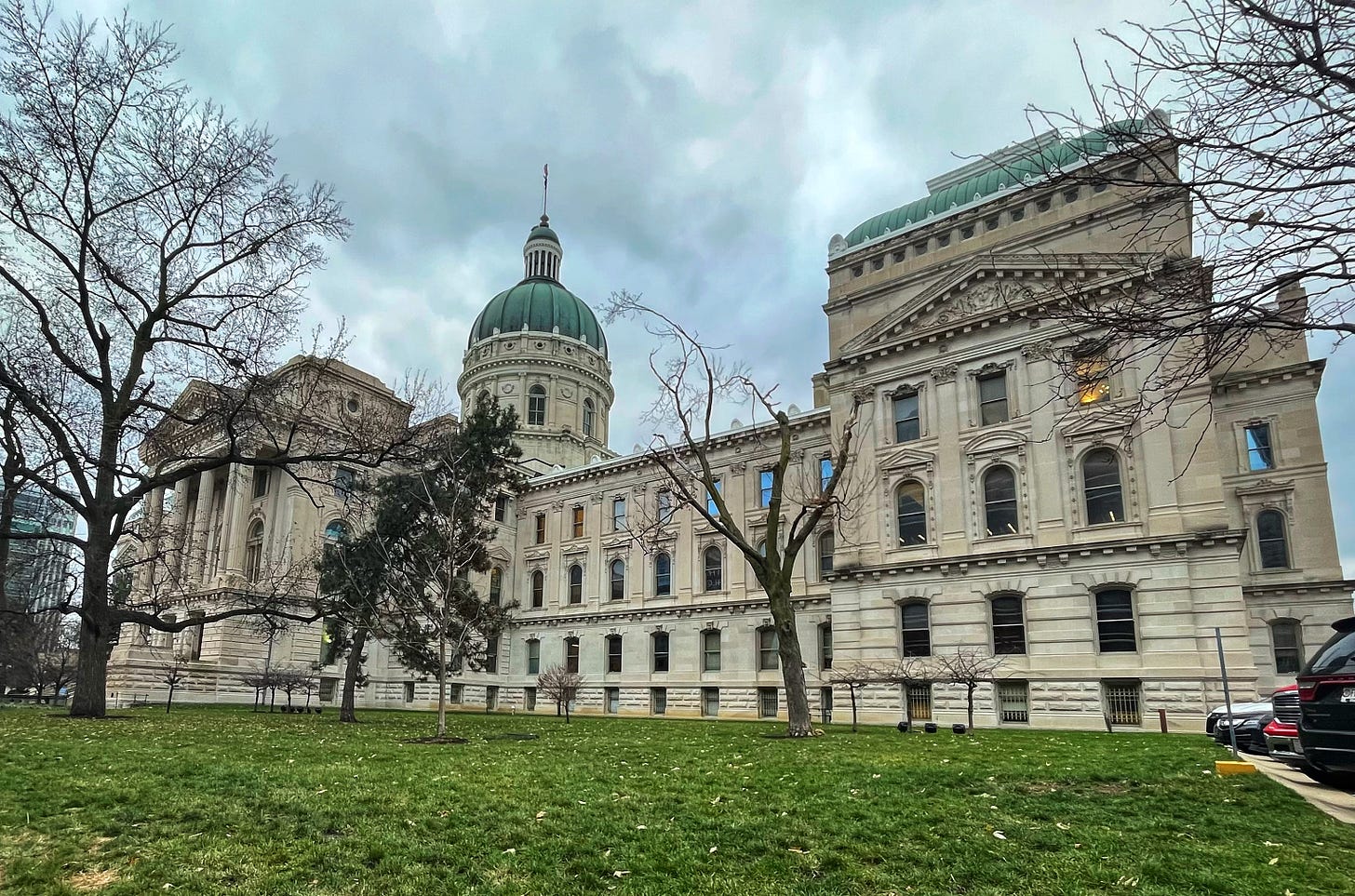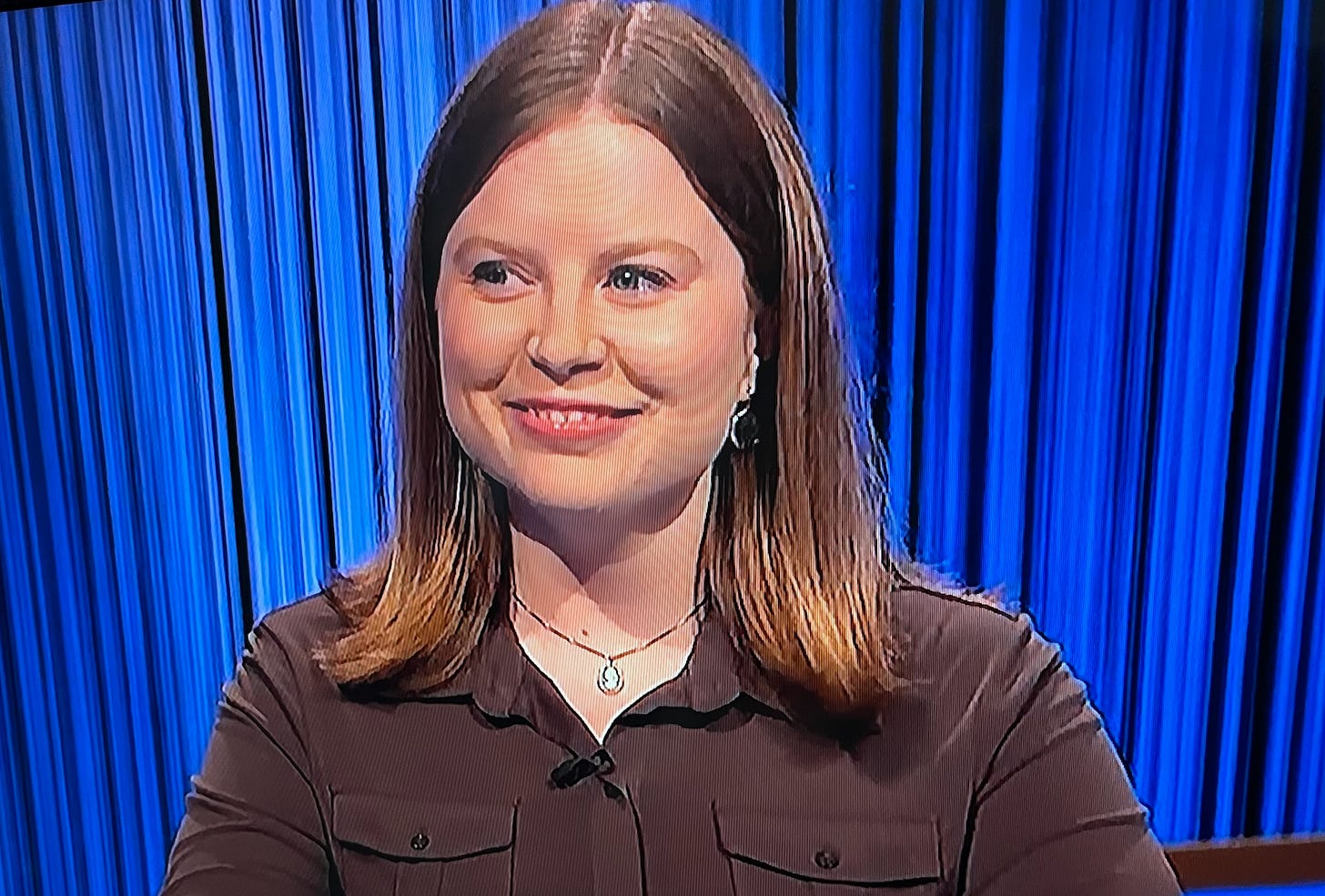Braun’s property tax bill softened, local schools, cities still wary of deep cuts looming
With Braun expected at a town hall Wednesday at the Tippecanoe Co. Fairgrounds, his property tax bill remains a moving target. Plus, how Adriana Harmeyer did in ‘Jeopardy’ Tournament of Champions
Today’s edition is sponsored by the Wabash Area Lifetime Learning Association. Better known as WALLA, the association provides educational, social and cultural opportunities for adults in Tippecanoe County and beyond. The brochure and registration form for the Spring Session 2025 classes is now available online at wallaonline.org. Check out the trips, tours and events on Facebook, and you are invited to join WALLA for a social coffee hour at 11 a.m. on the first Friday of each month at Starbucks in the West Lafayette Pay Less Market.
PROPERTY TAX BILL AMENDED, LOCAL OFFICIALS STILL WARY
Indiana’s property tax debate – including what kind of cuts Hoosier homeowners might get and how deep revenue cuts could wind up being for cities, counties, schools and more – shifted Tuesday, softening some of the anticipated blow for local leaders wary of how things will play out.
This is where things stood Tuesday, after senators rolled back parts of Gov. Mike Braun’s plan and sent Senate Bill 1 to the full Senate for consideration, via coverage from Indiana Capital Chronicle reporter Whitney Downard:
Senate property tax relief drops main portions of Gov. Braun’s plan
Senate Republicans on Tuesday backed away from the most significant parts of Gov. Mike Braun’s property tax cut proposal.
Instead, their version of relief includes tightening requirements for schools to advance certain referendums, limiting how much property tax levies can grow and introducing a credit for first-time homebuyers.
The cost to units of government would be just shy of $300 million in the first year, according to the author.
Three Democrats voted against the measure, citing the lack of relief for renters and the uncertain impacts on schools. It moved out of the committee on a 10-3 vote.
An amendment struck large portions of Gov. Mike Braun’s property tax relief proposal, including the annual 3% cap on the growth of property tax bills. Senior citizens, families with children and low-income Hoosiers had growth capped at 2% under Braun’s plan.
It also removed increased deductions for homeowners. Overall, Braun’s plan would have resulted in an immediate 21% reduction in the average homeowner tax bill.
Under the new Senate proposal, homeowners would see $1.4 billion in savings over the next three years. Braun’s plan would have saved $1.1 billion in its first year and $1.6 billion in its third year.
Sen. Travis Holdman, who authored Senate Bill 1, introduced the amended version Tuesday. Pulling back on Braun’s plan lessened the hit on local units of government, which rely on property taxes to pay for services like law enforcement, parks, libraries and fire safety.
“We have worked consistently with the governor’s office to get this to a good spot,” Holdman said. “We just think there’s a fine line that we have to walk to make sure that we are careful to be responsible to local government and, at the same time, provide some tax relief.”
For the full story from the Indiana Capital Chronicle, including the revised bill’s changes to timing of school property tax referendums, here’s a link.
On Tuesday, the governor’s office issued a statement saying the Senate committee came out with a bill that took “steps in the right direction,” adding that Braun planned to “carefully review the changes to his plan and looks forward to working with the House and Senate to strengthen the amended bill to include broad based and immediate property tax cuts for Hoosier homeowners who have been hit the hardest by skyrocketing home value inflation."
A week ago, Braun responded to concerns from local schools and cities by questioning whether they had been running things efficiently, saying: “Almost all of them are saying that they can’t do without what they’re having now. I would say: Prove it.”
What the revised plan could mean in potential property tax revenue cuts for individual cities, schools, townships and others in Tippecanoe County wasn’t clear. Senate Bill 1’s updated fiscal impact hadn’t been posted as of Tuesday afternoon.
The Legislative Services Agency initially estimated that for cities, schools and other government taxing districts in Tippecanoe County, overall, those numbers in reduced property tax revenues would have ranged from $23.9 million in 2026 to $38.8 million in 2028.
The initial numbers linked to SB1 had local officials blinking hard. (Scroll down to the bottom of this story to see the Legislative Services Agency’s report on local impacts tied to Braun’s proposal.)
“We haven’t gotten deep enough into what we’d do, just dealing with the shock of the numbers for now,” Les Huddle, Lafayette School Corp. superintendent, said Monday. “We’re obviously keeping an eye on it, because if that money’s not replaced some other way, we’re going to have to move fast to set some priorities. … None of it would be easy.”
LSC’s numbers under the original bill would have ranged from $2.2 million in 2026 to $3.6 million in 2028. Those would have amounted to 15.3% to 25% of LSC’s current property tax revenues and 9% to 14.7% of the district’s overall budget.
“We haven’t put anything out that says you can’t go to any more conferences or that we don’t have money for supplies,” Huddle said. “We’re not doing that, at this point. It’s more like, hold our breath, wait and see.”
NOW’S A GOOD TIME TO SUBSCRIBE TO THE BASED IN LAFAYETTE REPORTING PROJECT.
Scott Hanback, Tippecanoe School Corp. superintendent, said the district wasn’t speculating on what he called a moving target, as proposals change in the General Assembly. (SB1’s first draft would have hit TSC property tax revenues from $5.5 million in 2026 to $7.7 million in 2028.)
“It all comes down to people,” Hanback said. “I mean, 85% of the money we spend to operate this district is for people.”
Hanback said the sprawling district, with roughly 14,000 students, has been dealing with increased utility, transportation and maintenance costs in a district that continues to deal with Greater Lafayette’s population growth.
“We don't take for granted the responsibility and the duty that we have to shepherd and steward these tax dollars that come in,” Hanback said. “We don’t take that lightly. We don't want to be in a situation where people are saying, ‘Oh, you're doing this inappropriately.’ Or, ‘You're building a Taj Mahal.’ I’ve heard that quote from downstate, and I sure don't feel like we're doing that. No one from the community has said that. … TSC’s financial books are wide open. If anyone thinks there is waste or excess, do tell, because things are always tight.”
In West Lafayette, city officials put SB1’s initial cuts at 12%, 17% and 26% between 2026 and 2028.
“That's all employees of the city whose job is directly serving citizens, whether that's police and fire, or that's our parks department,” West Lafayette Mayor Erin Easter said. “Does that mean that we're getting there a minute later to your house in an emergency, or does it mean that we're cutting somewhere else from the health and safety and well-being of our communities? … We can prove it, if that’s what the governor’s saying, by cutting leaf and brush collection and other things that citizens ask to do. It’s not like cities are just throwing money around.”
Lafayette Mayor Tony Roswarski said conversations continue with local legislators. He said the bulk of the city’s property tax revenues when to police, fire and public safety. (Lafayette’s cuts in the initial bill ranged from $4.2 million to $6.8 million.)
“I think everyone takes property tax reform seriously,” Roswarski said. “Nobody’s opposed to keeping people from paying any more taxes than are necessary. But it’s got to be reasonable, and you have to look at it realistically.”
Local state Sens. Ron Alting, a Lafayette Republican, and Spencer Deery, a West Lafayette Republican, said negotiations aren’t over on SB1 and property taxes.
“I don't serve on the (Senate Tax and Fiscal Policy) committee, but those who do warned me that SB1 would be a work in progress,” Deery said Tuesday. “We saw the first signs of that today with a significant amendment that attempted to strike the right balance between those concerned about property taxes and those concerned about adequately funding essential local government services.”
Deery continued: “I anticipate the bill will continue to change, and when it comes to me for a vote, I will consider it for what it is and not for what it used to be or what others want it to become. My hope is that the authors will give us a bill that provides relief for those on fixed incomes and also gives local governments more control over their finances. Property taxes are collected and spent by local governments and they should be accountable to local voters, not the General Assembly for those decisions.”
Alting said: ""This amended bill would balance property tax relief for Hoosier property owners with the budget needs of local governments. … Members of both the Senate and House of Representatives will continue to work on the bill, and I am optimistic we can find a good landing spot for this issue before the end of the legislative session in April.”
On related notes …
BRAUN, BECKWITH IN A TOWN HALL WEDNESDAY AT FAIRGROUNDS: Gov. Mike Braun and Lt. Gov. Micah Beckwith are scheduled to participate in a town hall 6-7:30 p.m. Wednesday at the Tippecanoe County Fairgrounds, 1406 Teal Road. The event will be hosted by the Tippecanoe County Republican Party, We the People Indiana Revival and Citizens In Action. The public is invited. The event will include a Q&A, from questions collected ahead of time and selected by the host organizations.
THE ORIGINAL LOCAL IMPACT OF SB1: For cities, schools and other government taxing districts in Tippecanoe County, overall, the estimated numbers in reduced property tax revenues tied to Senate Bill 1, as first introduced, would have ranged from $23.9 million in 2026 to as much as $38.8 million in 2028.
Under this week’s amended version of SB1, that range – in taxpayer savings and revenue loss for local units of government – was $7.5 million in 2026 to $24.2 million in 2028 in Tippecanoe County, according to updated figures published Tuesday by the Legislative Services Agency.
Here's a comparison of the amounts in SB1, as introduced and as amended:
WL’s ADRIANA HARMEYER DROPS ROUND 3, STILL 2 VICTORIES FROM ‘JEOPARDY’ TOURNAMENT OF CHAMPIONS CROWN
Neilesh Vinjamuri, a software engineer from Lionville, Pennsylvania, ran away with Round 3 of the “Jeopardy” Tournament of Champions Tuesday, giving him consecutive wins and a 2-1 lead over West Lafayette’s Adriana Harmeyer on the syndicated show.
Harmeyer, a Purdue archivist and a 15-time “Jeopardy” winner in 2024, finished second Tuesday after taking the opening round in a tournament format that crowns a champ who is first to three wins. Isaac Hirsch, a customer support team lead from Burbank, California, hasn’t won a finals match, yet.
Vinjamuri could seal the championship with a win Wednesday.
In Tuesday’s episode, Vinjamuri entered Final Jeopardy with $30,000, more than double Harmeyer’s $14,000, giving him clear sailing on the final clue in the category of Contemporary Authors: “Asked by a student about the Loch Ness Monster, she said a time portal below could allow a prehistoric creature to pass through.” The correct response: “Who is Diana Gabaldon?” (Harmeyer was the only one of the three with the correct response.)
The Tournament of Champions winner will get $250,000.
Round four of the Tournament of Champions finals airs locally at 7:30 p.m. Wednesday on WLFI-TV18.
Thanks, again, for support from the Wabash Area Lifetime Learning Association (WALLA).
Thank you for supporting Based in Lafayette, an independent, local reporting project. Free and full-ride subscription options are ready for you here.
Tips, story ideas? I’m at davebangert1@gmail.com.






My experience is that Indiana is a pretty low-tax state. We rank #10 overall. The services we receive in return for taxes in Tippecanoe County/Lafayette are pretty good and efficient (except when they hire one of those companies to hack away at the trees near power lines). I'd pay 0.25% more in sales tax if it was dedicated to raising teachers' salaries. Or a special 0.15% property tax increase for the same purpose. And that's free money, because we don't have children, so we don't use our contribution. I'm missing the report/data on the counties that are using their budgets unwisely. Which ones have been identified? What are the citizen satisfaction surveys that have been used to support the current proposed legislation? I feel like I'm missing pieces of the puzzle to understand the urgency. The "prove it" phrase seems a bit unamerican. You are guilty until you prove yourself innocent? Politicians should have a reasonable portion of their favorite dessert before proposing legislation. Life is much better, less complicated, and tastier than they promote.
Indiana collects about $40 billion in taxes (2022), including $8.6 billion in property tax and $10.4 billion in sales tax, national ranking 37th and 20th respectively. I get that R's do not like big budget surpluses. Why not knock down our rather high sales tax? Seems easier to implement and less impact on essential local services.